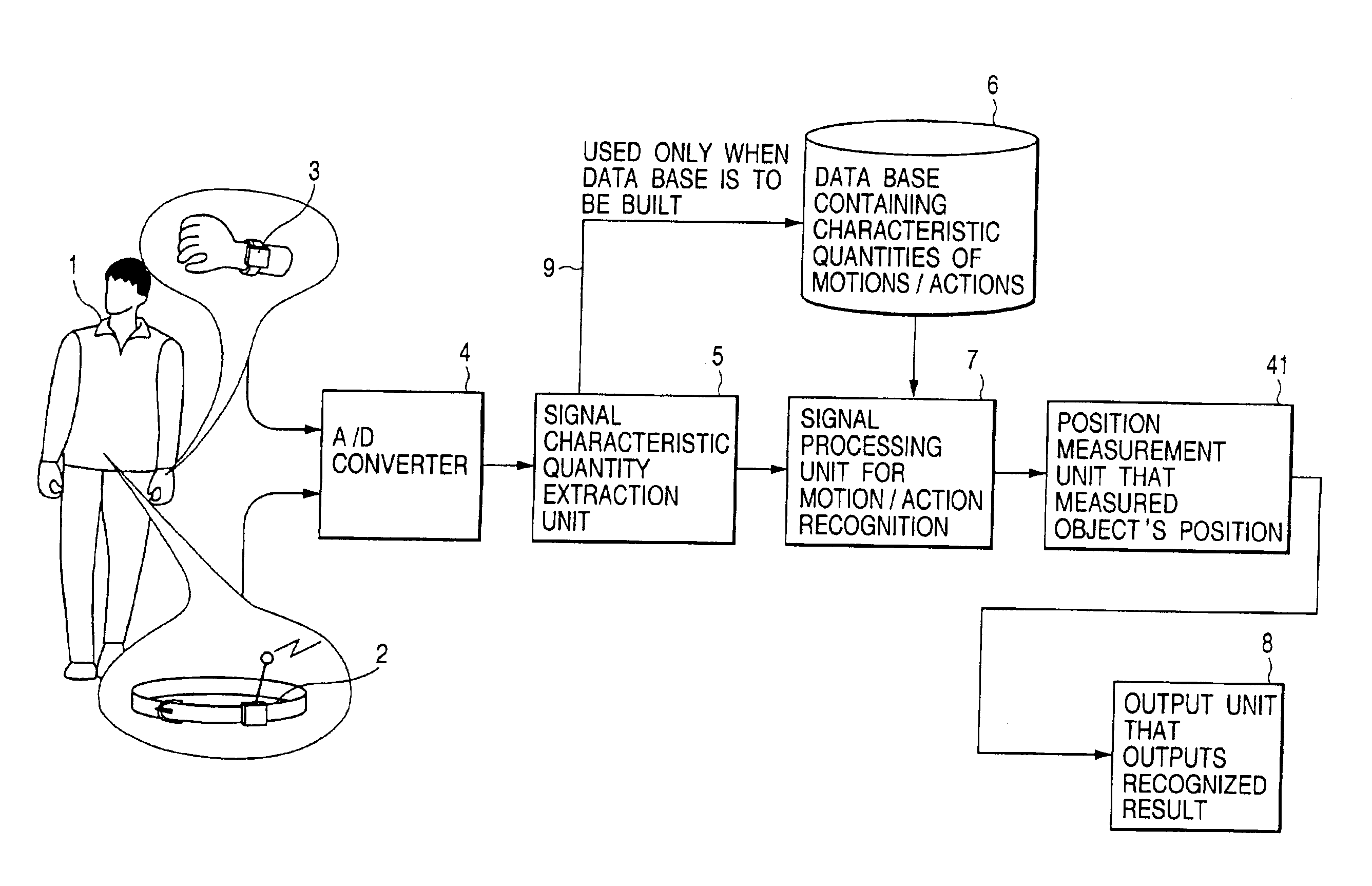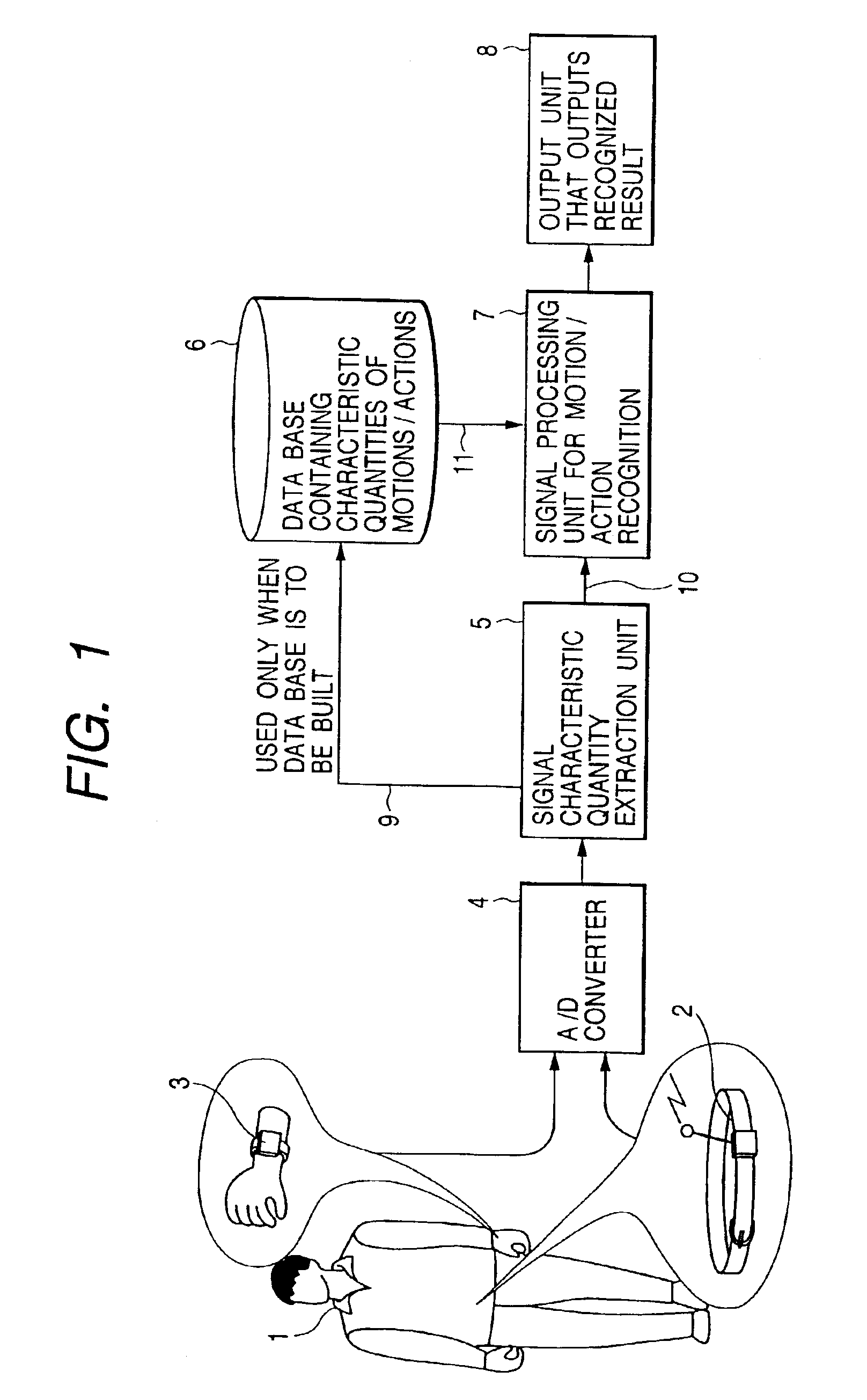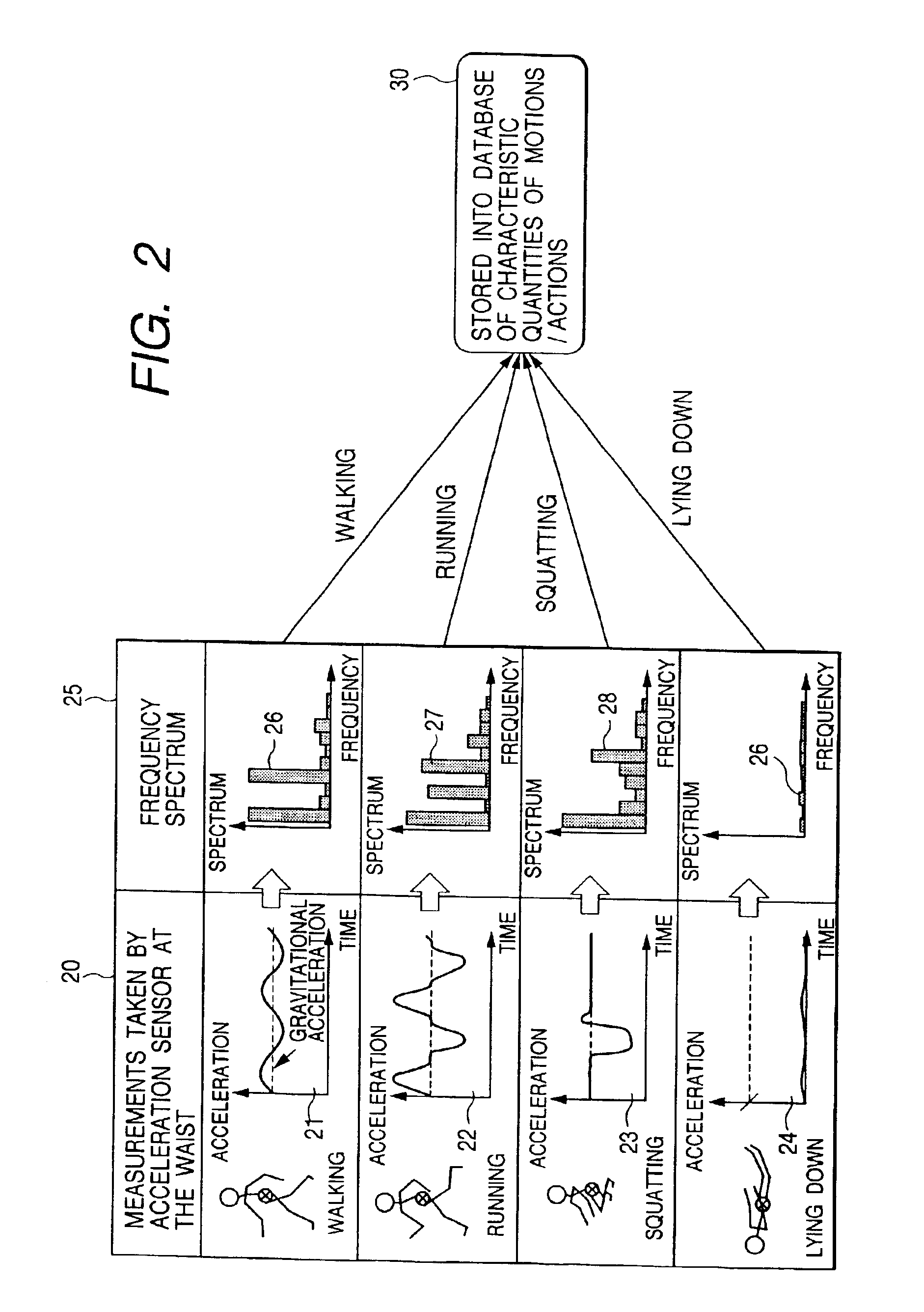Method, apparatus and system for recognizing actions
a technology of action recognition and apparatus, applied in the field of action recognition methods, apparatus and systems, can solve the problems of inability to detect correlations between the vibration waveform derived from the actual and the vibration waveform, and it takes a lot of time and effort for the observer to perform the task, and achieves the effect of more precision
- Summary
- Abstract
- Description
- Claims
- Application Information
AI Technical Summary
Benefits of technology
Problems solved by technology
Method used
Image
Examples
Embodiment Construction
[0102]One preferred embodiment of the invention will now be described with reference to FIG. 1. With this embodiment, an object 1 under observation is assumed as the target to be recognized for its motions or actions abbreviated to motions / actions hereunder where (appropriate).
[0103]A recognition apparatus practiced as an embodiment of the invention for recognizing motions and actions comprises: measuring instruments 2 and 3 attached to the object 1 under observation; an A / D converter 4 for digitizing measured results from the measuring instruments 2 and 3; a characteristic quantity extraction unit 5 for extracting a characteristic quantity from the measured results digitized; a characteristic quantity database 6 for storing premeasured and preextracted characteristic quantities of various motions and actions; a signal processing unit 7 which, using data held in the characteristic quantity database 6, recognizes motions / actions represented by the characteristic quantity extracted by...
PUM
 Login to View More
Login to View More Abstract
Description
Claims
Application Information
 Login to View More
Login to View More - R&D
- Intellectual Property
- Life Sciences
- Materials
- Tech Scout
- Unparalleled Data Quality
- Higher Quality Content
- 60% Fewer Hallucinations
Browse by: Latest US Patents, China's latest patents, Technical Efficacy Thesaurus, Application Domain, Technology Topic, Popular Technical Reports.
© 2025 PatSnap. All rights reserved.Legal|Privacy policy|Modern Slavery Act Transparency Statement|Sitemap|About US| Contact US: help@patsnap.com



